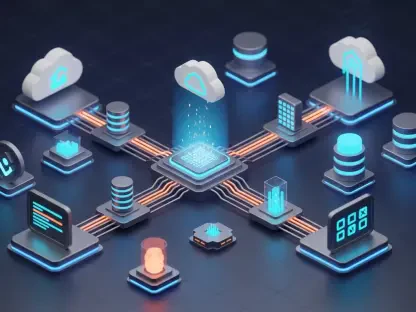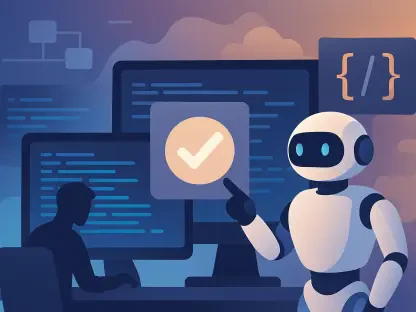Generative artificial intelligence (AI) is poised to revolutionize DevOps workflows by accelerating software development, enhancing quality, and automating numerous processes from coding to monitoring. However, while the benefits of AI in DevOps are substantial, the integration introduces challenges that must be carefully managed to ensure code quality and handle the influx of new code.
Accelerating Application Code Management
Generative AI promises to significantly expedite the process of writing application code, but its benefits extend beyond mere speed. This AI technology can also detect bottlenecks, defects, and security issues within the code, substantially improving overall code quality and reducing the manual toil typically associated with these tasks. By automating these aspects, organizations can focus more on innovation rather than maintenance, creating a more dynamic and efficient development environment.
Enhancing Release Management
The predictability of software release processes stands to be greatly improved through the use of AI. By analyzing dependencies and complexities within the code, AI can make the potential impact on business operations more transparent, aiding in better decision-making. Moreover, the technology can enhance key metrics such as change failure rates, leading to more reliable and predictable release cycles. This improved predictability translates to fewer disruptions and a smoother deployment process.
Optimizing Testing Processes
Testing is a crucial phase of software development, one that can benefit enormously from AI integration. AI can determine the most critical areas to test, thereby reducing cycle times and testing costs. By automating the creation of unit tests for under-tested code areas and streamlining collaborative code reviews, AI ensures a more comprehensive and efficient testing process. This results in higher-quality software and faster delivery times, meeting the ever-increasing demands of the market.
Bolstering Cybersecurity
AI’s potential in cybersecurity is particularly noteworthy for DevSecOps teams. The technology enables real-time identification and remediation of security vulnerabilities during the development process. Advanced threat modeling and the use of synthetic data for compliance can greatly enhance the security measures in place, ensuring that vulnerabilities are addressed promptly. This real-time capability can prevent security flaws in the final product, thereby protecting both the organization and its users.
Improving Monitoring and Reliability
AI can analyze massive amounts of metadata to detect patterns and automate preemptive actions aimed at minimizing application downtime. This capability enhances the reliability of applications, as issues can be detected and addressed before they escalate into significant problems. AI’s ability to aggregate data from various tools improves mean time to recovery (MTTR), facilitating faster detection and response to issues. The result is enhanced application uptime, contributing to a more stable and reliable software environment.
Navigating the Challenges of AI Integration
While the advantages of AI in DevOps are compelling, the integration of this technology comes with its own set of challenges. Ensuring the reliability and trustworthiness of AI recommendations is paramount. This involves fine-tuning AI models to prevent hallucinations, ensuring alignment in language understanding, identifying biases within training data, and guarding against data poisoning. Addressing these issues is crucial for maximizing the benefits of AI in DevOps.
The Future of DevOps with AI
Generative artificial intelligence (AI) is set to transform DevOps workflows through its ability to accelerate software development, improve quality, and automate a wide range of processes from coding to system monitoring. By leveraging AI, teams can significantly speed up deployment cycles, reduce human error, and increase the efficiency of various development tasks. With AI handling routine tasks, developers can focus more on innovation and complex problem-solving.However, while the advantages of integrating AI into DevOps are considerable, they come with their own set of challenges. Ensuring high code quality and managing the surge of newly generated code are critical concerns that must be addressed. This involves implementing robust testing frameworks, regularly reviewing AI-generated code, and setting up appropriate monitoring to catch and resolve issues early. Furthermore, maintaining a balance between automated processes and human oversight is crucial to maximize AI’s potential while mitigating risks. Integrating AI into DevOps workflows thus requires a comprehensive strategy to harness its benefits fully while carefully managing associated challenges.









